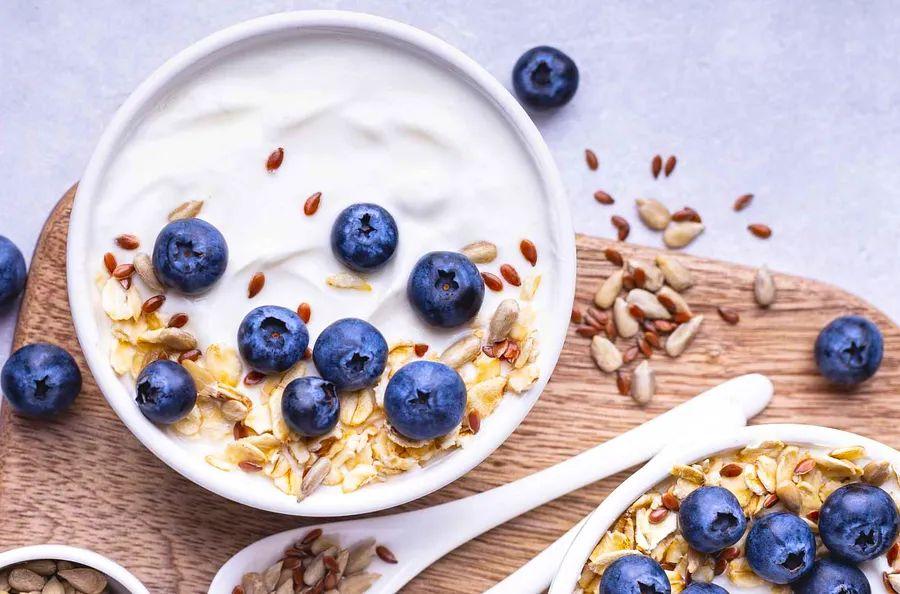5 Essential Breakfast Foods for People with Diabetes to Enjoy Regularly

Breakfast is often called the most important meal of the day because it provides the energy and nutrients your body needs to begin the day right. After a night’s rest, you may wake up feeling sluggish or low in energy, making a healthy breakfast the perfect solution to start your day off on a productive note.
An unhealthy breakfast, on the other hand, can leave you feeling drained, with a mid-morning energy slump. These types of meals are typically high in refined carbs and sugars, offering little nutritional value.
For people with diabetes, it’s even more important to choose foods that won’t cause blood sugar spikes. Keeping your blood sugar levels stable throughout the day is crucial, and a balanced breakfast can help you achieve that.
While you may already know that sugary pastries and bagels aren’t ideal for managing diabetes, it’s also important to be cautious with seemingly healthy options. Foods like sweetened instant oatmeal, açai bowls, fruit-heavy smoothies, and flavored yogurts can be too high in sugar and carbs for people with diabetes.

"When planning meals for diabetes, it’s crucial to include a balance of protein, high-fiber carbs, and healthy fats. This combination helps regulate blood sugar levels and keeps you feeling full throughout the morning," says Lauren Harris-Pincus, MS, RDN, founder of NutritionStarringYOU.com and author of The Everything Easy Pre-Diabetes Cookbook.
Protein, fiber, and healthy fats slow down digestion and absorption, which helps prevent a rapid rise in blood sugar after eating. "Additionally, some foods can help improve insulin sensitivity, making them a great choice for people with diabetes," she adds.
Looking for diabetes-friendly breakfast ideas? Start with this list of the top foods to include in your morning meals, along with tips on how to enjoy them for the best results.
1. Avocado

Avocados are rich in heart-healthy monounsaturated fats and fiber, which helps keep you full and satisfied for longer periods of time.
"A 2018 clinical study involving 31 adults with overweight or obesity showed that adding half or a whole avocado to breakfast resulted in a reduced glucose and insulin response compared to a control group," says Harris-Pincus.
Pair avocado with a source of protein, like eggs (you can skip the yolk if preferred, though it contains choline, which supports cognitive health), and add a mix of colorful vegetables for a boost of essential nutrients. Adding some high-fiber fruits, like berries, provides natural sweetness without spiking blood sugar levels.
Try: Avocado, Feta, and Egg White Omelet
2. Frozen Wild Blueberries

"Wild blueberries are a low-glycemic food that can support healthy blood sugar levels and improve insulin sensitivity," says Harris-Pincus. "Additionally, they contain twice the antioxidant power of regular blueberries, which are known for their ability to reduce inflammation."
If wild blueberries are unavailable, regular blueberries are still a great option in the morning. They are packed with antioxidants, fiber, and brain-boosting nutrients. Their anti-inflammatory properties may also help reduce the risk of dementia.
Try: Healthy Wild Blueberry Sauce
"This sauce is delicious when drizzled over protein pancakes, stirred into oatmeal, or layered in a Greek yogurt parfait with high-fiber cereal," she suggests.
3. Oats

"Oats are rich in beta-glucan, a gel-forming fiber that helps regulate blood sugar and cholesterol levels," says Harris-Pincus.
This benefit applies to all varieties of oats—quick, old-fashioned, steel-cut, and even oat flour—so feel free to experiment with different options. Oatmeal, granola, and protein-rich toppings are great choices, as long as you watch the sugar content. For a filling and sweet breakfast, try adding oats to plain Greek yogurt.
Try: Chia Berry Swirl Oats
4. Chia Seeds

These tiny powerhouses are great for increasing satiety. "Chia seeds can absorb up to 10 times their weight in water, which helps slow digestion and keep you feeling full. They’re also packed with plant-based protein, fiber, and heart-healthy omega-3 fats," she explains.
Try: Chia Greek Yogurt Pudding
Top your Greek yogurt chia seed pudding with your favorite diced fruit or a handful of nuts or seeds. The combination of yogurt and chia seeds provides plenty of protein and fiber, and the added toppings give an extra boost to the fiber content.
5. Plain Greek Yogurt

Plain Greek yogurt, or skyr yogurt, is an excellent source of protein and contains probiotics to support gut health while keeping you feeling full.
"The probiotics in yogurt play a crucial role in maintaining gut health, and research is increasingly showing how vital a healthy gut is for managing diabetes," says Harris-Pincus.
Just be sure to skip the sweetened, pre-packaged options and opt for unsweetened yogurt. It serves as a great base, allowing you to add your own healthy natural sweeteners, like fresh fruit, if you prefer.
Try: Greek Yogurt Pancakes
"Use Greek yogurt pancakes as a foundation for adding fresh berries, nuts, or seeds to boost fiber and protein content," she suggests. For a diabetes-friendly twist, swap out sugary syrup with a dollop of extra yogurt to keep the stack moist and healthy.

1

2

3

4

5
Evaluation :
5/5